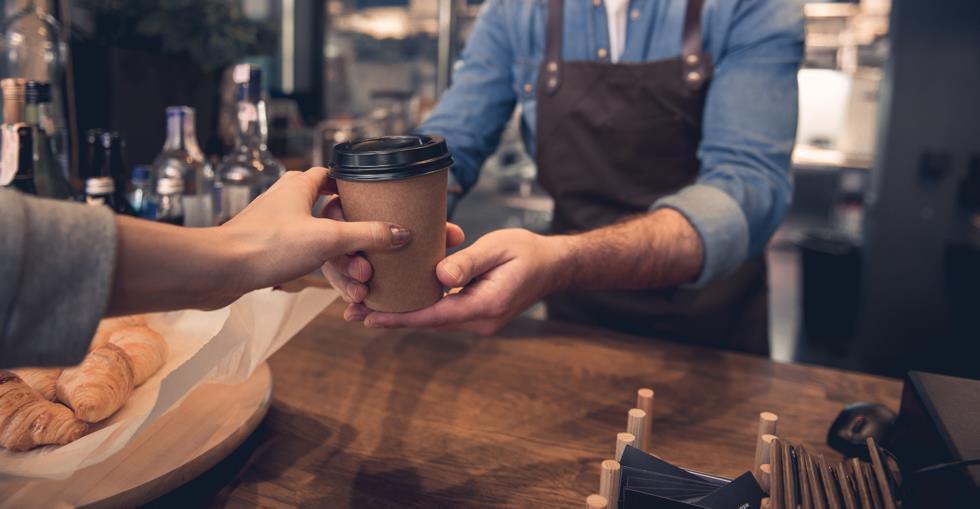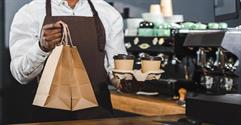Over the last 15 years, the growth of the UK's coffee industry has been nothing short of remarkable.
Typically, a nation of tea drinkers, the UK's 'coffee revolution' coincided with the economic boom period of the mid-to-late 1990s.
Coffee franchise chains such as Starbucks, Nero and Costa, are giant companies producing mass-market products, and they will continue to dominate the industry as it grows.
This does not, however, mean the annihilation of the independent outlet. As palates become more sophisticated there is a growing appetite for artisan or speciality coffee outlets, catering to the coffee connoisseur.
We spoke to some of these independent coffee shops to find out how they kept abreast of the coffee trends.
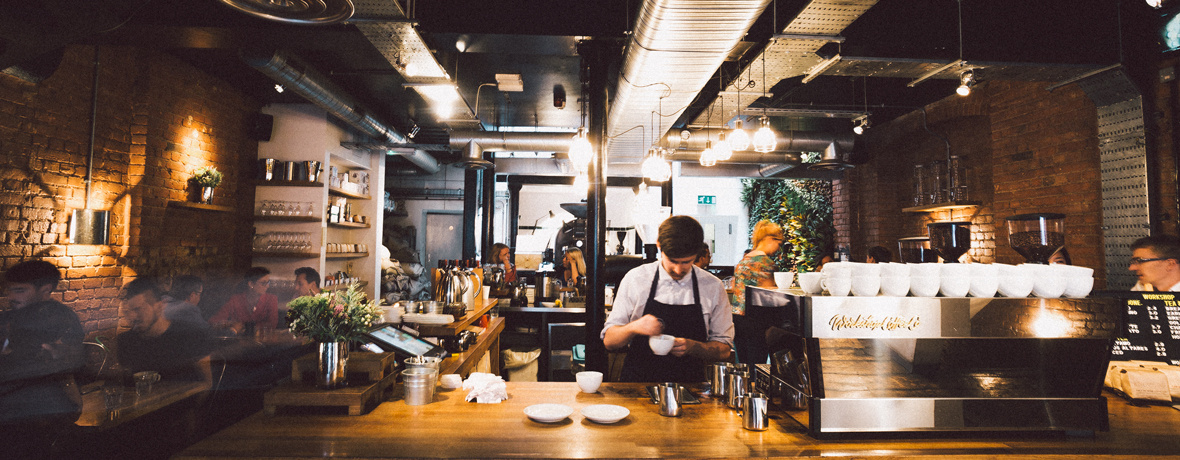
Get the right location
Workshop Coffee roasts their beans in-house and provides home-brewing classes, which makes them different to most coffee shops. They pride themselves on attention to detail and their rigorous staff training (they even weigh the beans) – all with the aim to create the perfect cup of coffee.
We spoke to founder James Dickson about running Workshop Coffee Co.
James told us that location, footfall and potential clientele are key considerations when you buy a coffee shop.
“Location is very important because you need a certain amount of
He also told us that prospective coffee shop owners need to look at the local demographics and ask themselves: “Who's going to be walking through the doors?” and “what type of people comprise that local area? [...] Are they office workers? Are they hospital workers? Is there a university?”
His “best piece of advice is to really think through what your location means and who your customers are before you open the doors or before you even sign a lease or buy a lease.”
"It's very, very simple – but it's not very obvious. And a lot of people just want the site and they jump a little bit too far ahead.”
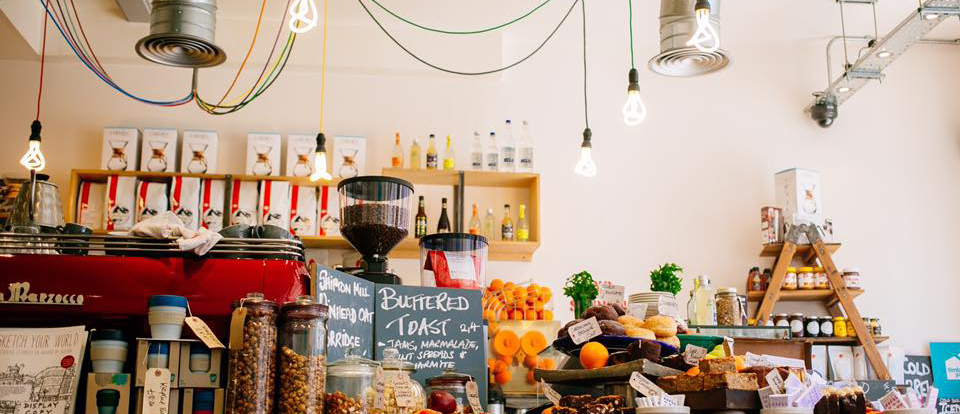
Create a great atmosphere
Run by coffee (and tea) aficionados Darren Elliot and Ruth Coppin, Timberyard was born when the pair noticed a gap in the market for good coffee shops to have meetings in.
With the aim to banish the stereotype of boring meetings and bad coffee, Timberyard provides its creative clientele with meeting places and workspaces where they can stay as long as they like and work productively.
Darren told us that the shop is designed to “be as comfortable and homely as possible”, likening it to a “modern London apartment” with its “warehouse look”, “urban textures” and
He highlights atmosphere as one of the most important features of a good coffee shop, describing Timberyard as having “a very buzzy atmosphere where you can see people collaborating, networking and getting to know each other. It’s not just a heads-down-in-a-Mac kind of environment.”
Darren believes that there are certain things that contribute to the atmosphere of the shop:
Seating: “You've got to incorporate different kinds of working areas, where people can work individually and also have private meetings.”
Wi-Fi: “It needs to be high speed, high quality, to ensure that it can handle the 80-100 people who use it on a daily basis.”
Music: “You need to get the music level right so that it isn't too much like a library but also so that it masks the business conversations around you.”
Lighting: “We’ve tried to use as much natural light as possible…You need lots of natural daylight so the environment is bright, airy and conducive to working in.”
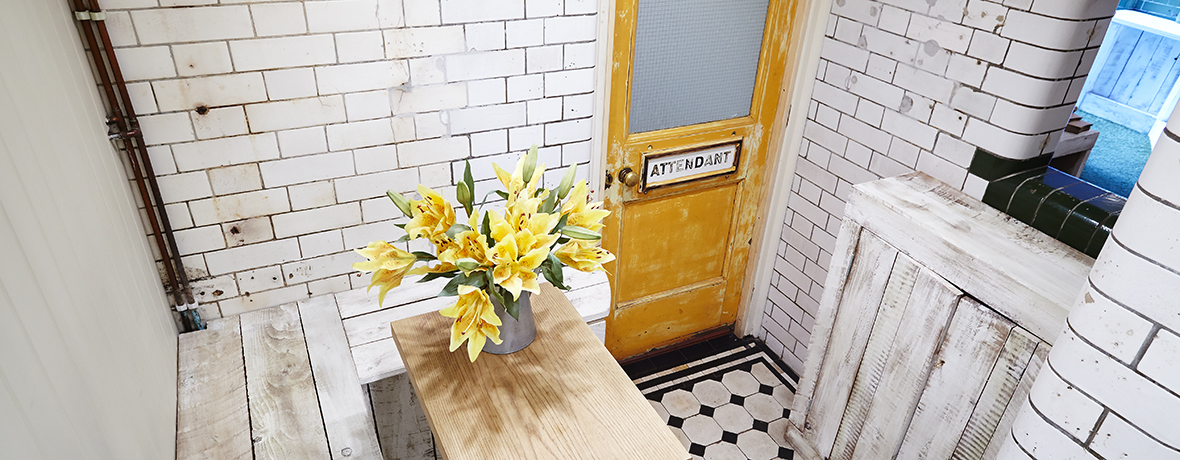
Get people talking
What better place to spend your pennies than Attendant? Their original shop was a disused Victorian toilet that had been closed for 60 years – complete with men’s urinals and hand dryer. Their second was a little more conventional but with the same ethos based
We got some top marketing tips from co-founder Ryan De Oliveira.
Ryan told us that marketing is an essential part of running any business – which in his case partly means taking advantage of the shop’s tongue-in-cheek USP. But he believes that good old-fashioned word-of-mouth is probably still the best marketing there is.
“It’s all about that interaction that you have with the customer,” he says. “How you detach them from that 9-5, how you make them feel in the environment and the experiences they have.
Social media is so important these days; how you interact over Instagram, Snapchat, Twitter etc – but it’s quite hard to tell you the truth.
“You have to convey very clearly what it is you are doing, what makes you interesting and exciting, why you go to the lengths you do to produce the coffee or food that you do.
“Because it’s quite short, quick snapshots, so you have to be very clear and concise with what you put out there.”
His final words of advice to prospective coffee shop buyers
Photo credits: Workshop Coffee company, Timberyard and Attendant
